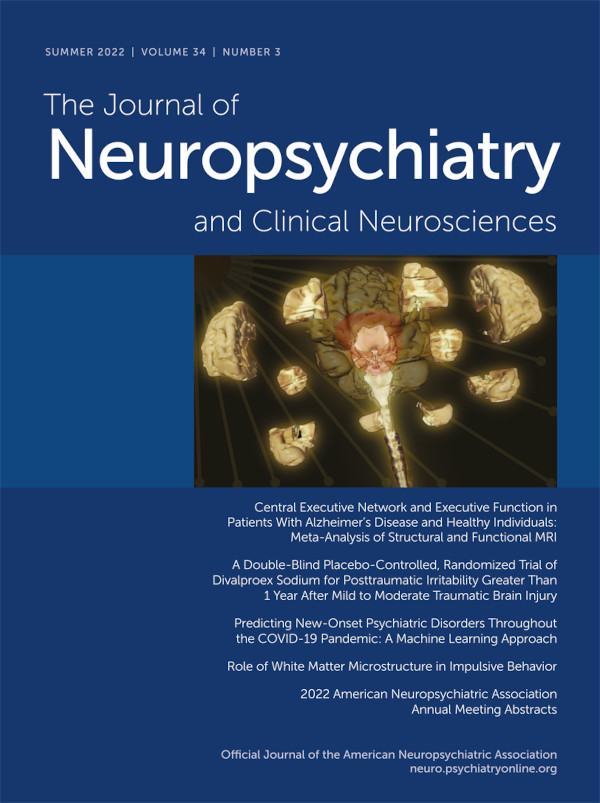A Double-Blind Placebo-Controlled, Randomized Trial of Divalproex Sodium for Posttraumatic Irritability Greater Than 1 Year After Mild to Moderate Traumatic Brain Injury
Abstract
Objective:
Posttraumatic irritability after traumatic brain injury (TBI) may become a chronic problem and contribute to impaired everyday function, either alone or in combination with alcohol use disorder. The authors hypothesized that divalproex sodium (VPA) would improve posttraumatic irritability and result in lessened alcohol use.
Methods:
This randomized, placebo-controlled double-blind clinical trial recruited participants with an index TBI occurring 1 or more years prior to enrollment, a history of alcohol use disorder, and posttraumatic irritability corroborated by a knowledgeable informant. An 8-item subset of the Agitated Behavior Scale served as the primary outcome measure of VPA efficacy. Doses of VPA were titrated to standard serum concentrations of 50 µg/ml to 100 µg/ml.
Results:
Forty-eight persons completed this clinical trial (VPA, N=22; placebo, N=26). At baseline, participants rated their posttraumatic irritability as less severe than did their informants (p<0.05). During the trial, informants reported significant and sustained reduction of posttraumatic irritability (p=0.03) in the study participants. Biweekly averages during drug exposure confirmed this (p<0.03, Cohen’s d=0.44). Treatment efficacy was not related to measures of anxiety, posttraumatic stress disorder, sedation, or veteran versus nonveteran status. Alcohol use did not change as a result of treatment. There were no serious adverse events.
Conclusions:
This study demonstrated an effect of VPA on posttraumatic irritability, and VPA was well tolerated. Further definition of treatment efficacy and safety requires a large-scale multisite trial, using a randomized, double-blind placebo-controlled design.



